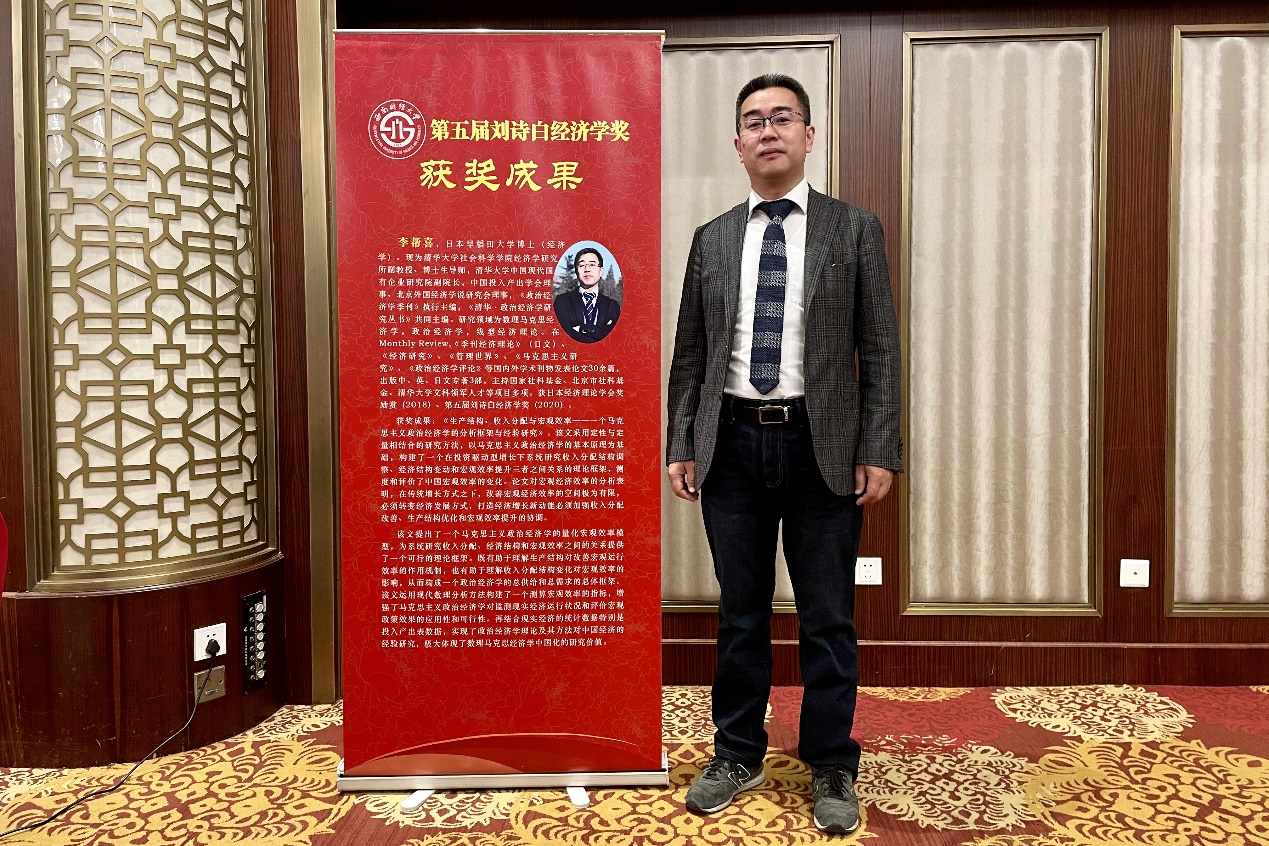Associate Professor Li Bangxi from Institute of Economics Wins the 5th Liu Shibai Economics Award
On May 30, the ceremony presenting the 5th Liu Shibai Economics Award (2020) was held at the Beijing Minzu Hotel. “Production Structure, Income Distribution and Macroeconomic Efficiency: An Analytical Framework and Empirical Study of Marxist Political Economy”, an academic paper published by Li Bangxi, Associate Professor at the School of Social Sciences, and other co-authors in the third issue of the Economic Research Journal in 2019, won the award and was unanimously recognized and highly appraised by the award committee and peer review experts.
The Liu Shibai Economics Award was established by the Liu Shibai Foundation of the Southwestern University of Finance and Economics to promote the thriving of philosophy and social sciences, introduce more high-quality works on economic research, and advance the construction of economics with Chinese characteristics, style and manner, exerting an extensive influence in academia. Launched in 2012, the Liu Shibai Economics Award is reviewed every two years, consisting of the prize for academic monographs and that for academic papers (including research reports and survey reports). The awarding ceremony has been held for five sessions, and the review of the 5th Liu Shibai Economics Award was widely supported and engaged by people from all walks of life, with a total of 127 applications received, which involve multiple aspects of applied and theoretical economics. Through expert review and meeting review of the award committee, the award was presented to 10 research projects.
In the awarded paper, Prof. Li built a quantitative analytical framework of political economy, systematically studied the relationship among income distribution adjustments, changes in the economic structure and macroeconomic efficiency improvement, and successfully applied methods of Marxist economics to major problems in reality by taking into account input-output tables and other data, scientifically quantifying economic indicators at the level of macroeconomic efficiency, mesoeconomic structure and microscopic distribution, and enhancing the effectiveness of political economy in monitoring the actual economic performance and evaluating the effects of macro policies.
